
Hilarious, this is spot on: www.theguardian.com/lifeandstyle...
31.08.2025 08:41 — 👍 0 🔁 0 💬 0 📌 0@james-guest.bsky.social
Reader in Coral Reef Ecology at Newcastle University. PI of The Coralassist Lab. Favorite activity: swimming over a healthy coral reef!

Hilarious, this is spot on: www.theguardian.com/lifeandstyle...
31.08.2025 08:41 — 👍 0 🔁 0 💬 0 📌 0Wordle 1,510 1/6
🟩🟩🟩🟩🟩
😃😃😃😃😃
I've faithfully stuck to that word as my opener for 3 years! Now I just need to find another opening word 🧐
07.08.2025 20:56 — 👍 0 🔁 0 💬 0 📌 0At last...Wordle in 1 today 😎
07.08.2025 14:34 — 👍 0 🔁 0 💬 1 📌 0New Coral Reef article alert ftom the Coralassist Lab!
rdcu.be/evbqK showing the dramatic effects of grazing pressure on early coral survivorship.
@newcastleuni.bsky.social
@erc.europa.eu

There are many lies told by politicians when it comes to immigration in the UK, but none is bigger than the claim that it’s all too easy: www.theguardian.com/commentisfre...
02.06.2025 06:44 — 👍 1 🔁 0 💬 0 📌 0My island of strangers: a poem | Michael Rosen
19.05.2025 06:10 — 👍 0 🔁 0 💬 0 📌 0UK wins £500m in science grants from EU Horizon scheme after Brexit lockout
05.05.2025 08:27 — 👍 1 🔁 0 💬 0 📌 0This blog really resonated with me describing the unseen work behind the papers that we publish: www.springernature.com/gp/researche...
17.04.2025 20:05 — 👍 1 🔁 0 💬 0 📌 0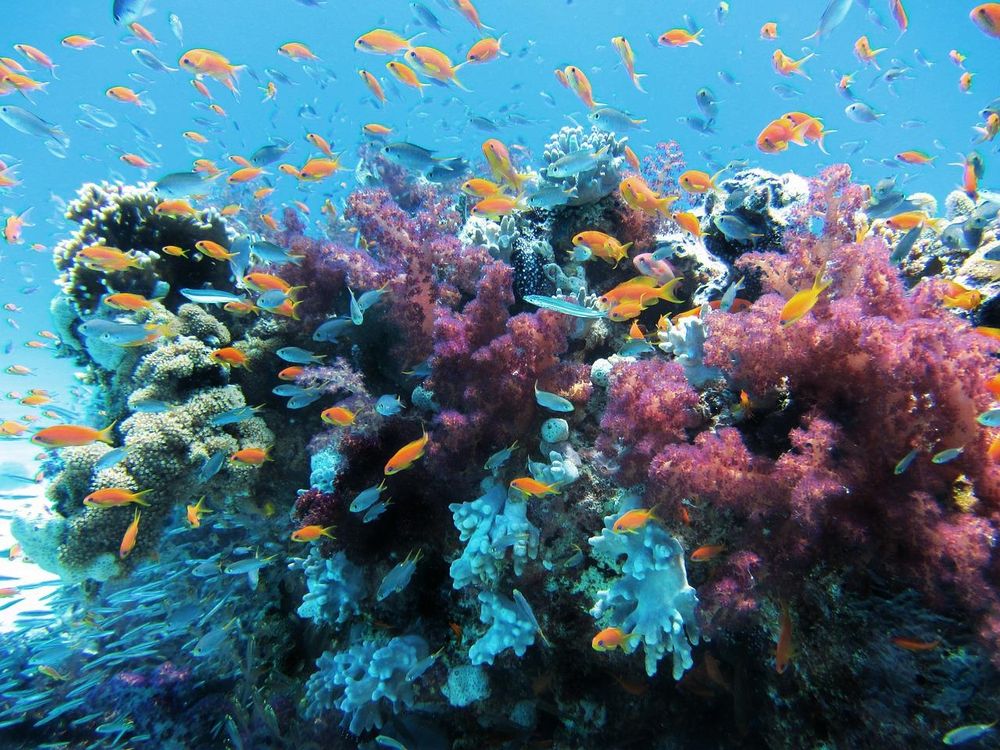
Explore some of the wide-ranging research on climate and coral reefs published in our journal 👇
latitude.plos.org/2025/03/cora...
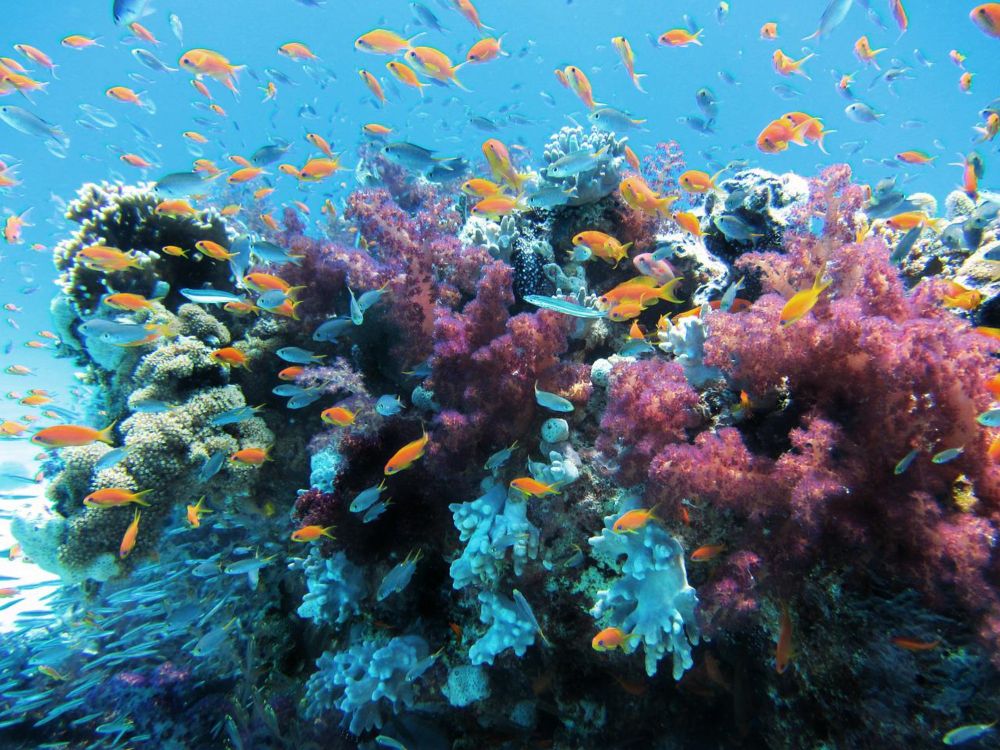
New on the Latitude blog: a round-up of some of the wide-ranging and interdisciplinary research and commentary on climate and coral reefs published in PLOS Climate.
latitude.plos.org/2025/03/cora...
**2 weeks** left to apply - come join me and @lec-reefs.bsky.social at Lancaster University.
15.02.2025 07:59 — 👍 6 🔁 6 💬 0 📌 0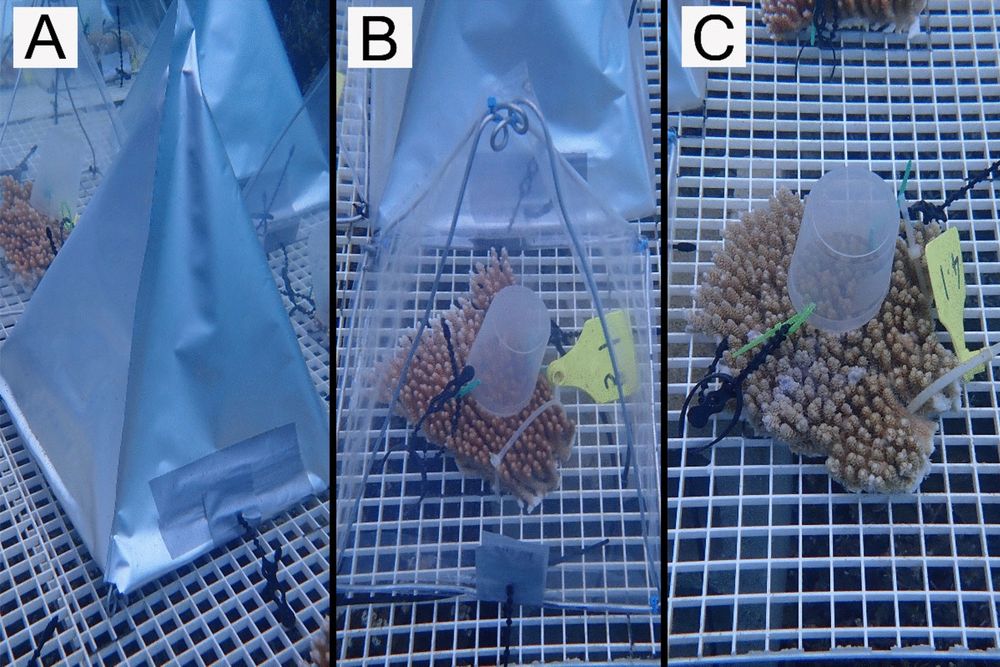
New paper alert! Congrats to Ruben de la Torre Cerro on publishing the first chapter of his PhD on how moonlight-darkness cycles affect spawning timing in an Acropora coral: link.springer.com/article/10.1...
01.02.2025 19:56 — 👍 2 🔁 1 💬 0 📌 0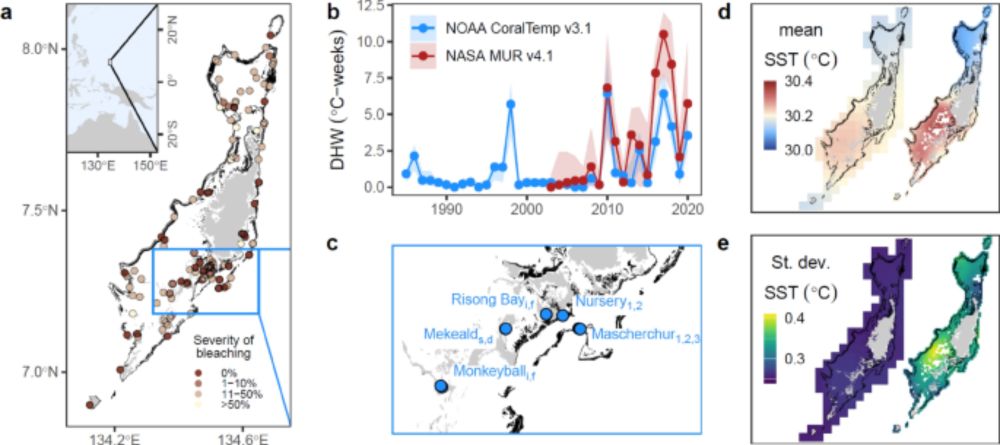
RESEARCH: Higher spatial resolution is not always better: evaluating satellite-sensed #sea surface temperature products for a west Pacific #coral reef system. Coauthored by @simondonner.bsky.social r . www.nature.com/articles/s41... via @natureportfolio.bsky.social
09.01.2025 17:15 — 👍 5 🔁 1 💬 0 📌 0Attention coral reef scientists...
09.01.2025 00:04 — 👍 11 🔁 2 💬 1 📌 0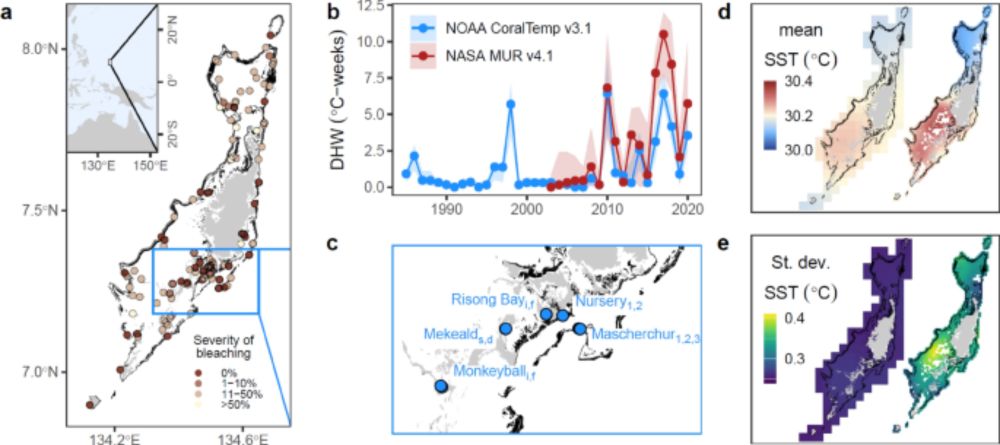
OK, I'm biased... but I'm a big fan of this new paper by @liamlachs.bsky.social, which emerged from his visit to UBC. The message: don't just grab the highest resolution data. You need to evaluate what is suitable for your specific location and research question.
www.nature.com/articles/s41...
🪸The Coral Reef Feed hopes to build a Bluesky community of scientists, students, managers, enthusiasts, communicators, artists, etc. that care about coral reefs and climate change
bsky.app/profile/did:...
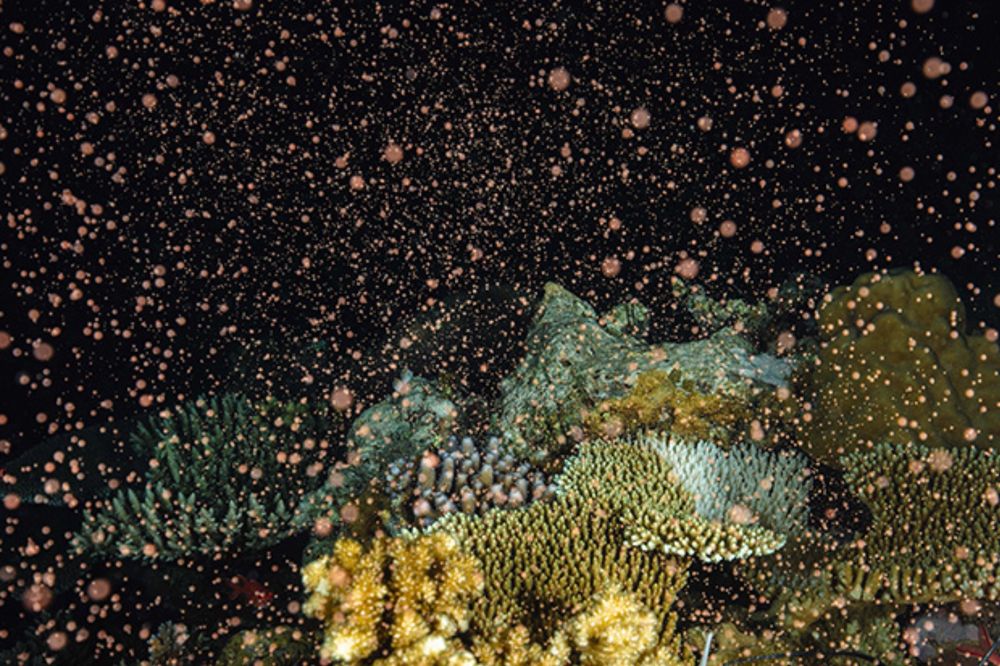
Corals need to be close to their partners to reproduce, just a few meters. This has implications for bleaching event recovery which can leave individuals stranded, hampering reef re-population.
Story: www.uq.edu.au/news/article...
#coralreef #globalwarming #oceanhealth #biodiversity
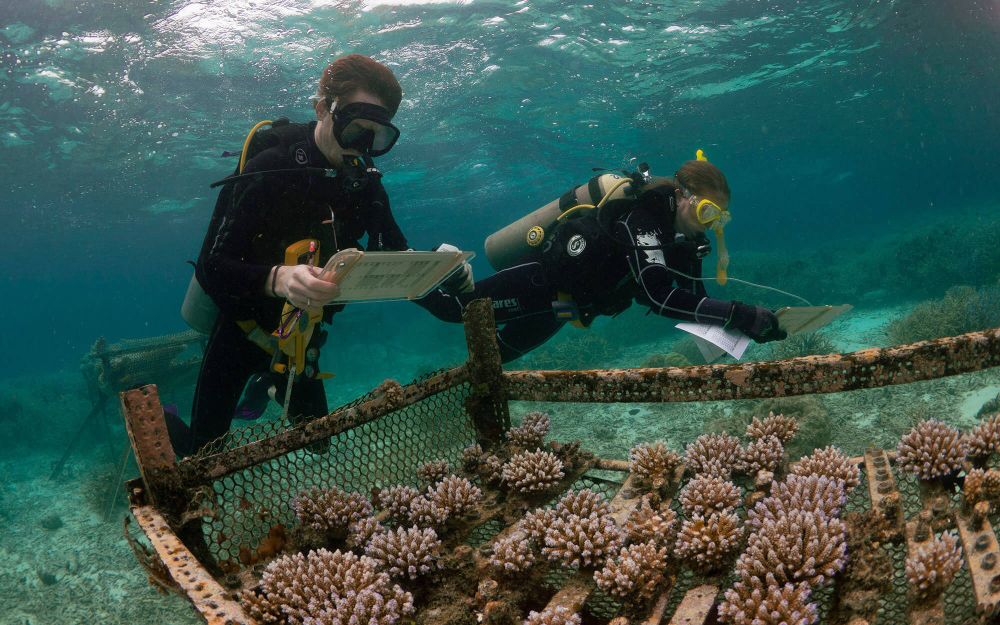
Paper was led by Adriana Humanes, Liam Lachs & James Guest
Part of the fruitful Coralassist Lab - PICRC collaboration, with support from the Horniman Museum, Uni. Of Exeter, Derby Uni. & Uni. Victoria
Funded by ERC, with support from UKRI / NERC
(9/9)
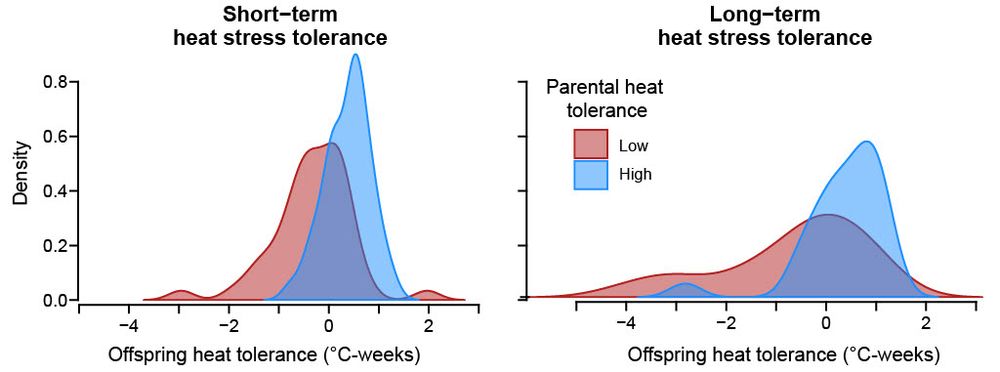
Our study shows selective breeding is feasible, yet potential heat tolerance gains are modest compared to expected future warming.
R&D is needed to optimise breeding interventions and maximise positive impacts.
Ultimately, reefs still depend on rapid reductions in greenhouse gas emissions.
(8/9)
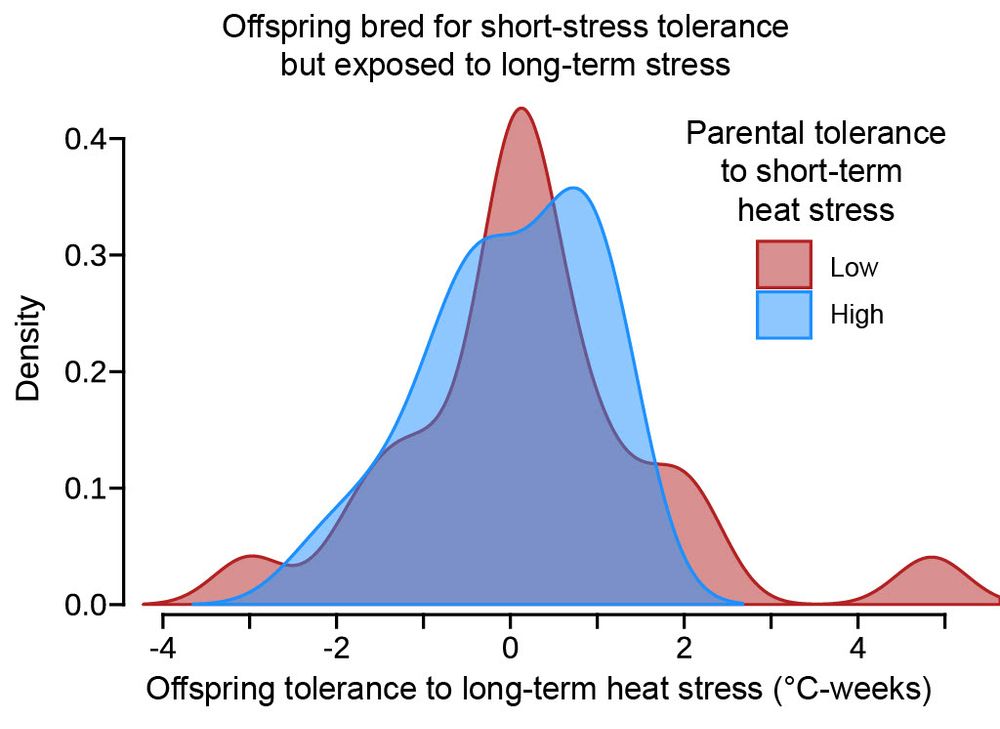
Offspring bred for short-stress tolerance did not show evidence of enhanced tolerance to the long-term stress that more closely emulates marine heatwaves.
To maximise coral fitness in the face of climate change, care will be needed when selecting which traits to breed for.
(7/9)
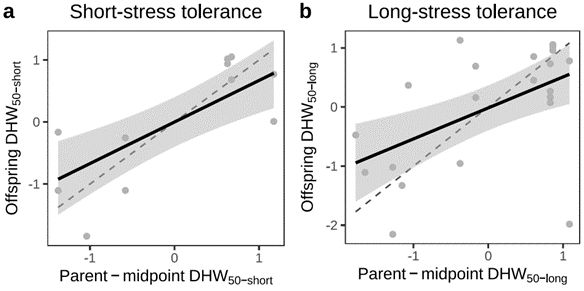
Nature vs. Nurture:
The heritability of heat tolerance traits was ~0.2-0.3.
This means these traits have a substantial genetic basis but are also heavily influenced by other non-genetic factors.
(6/9)
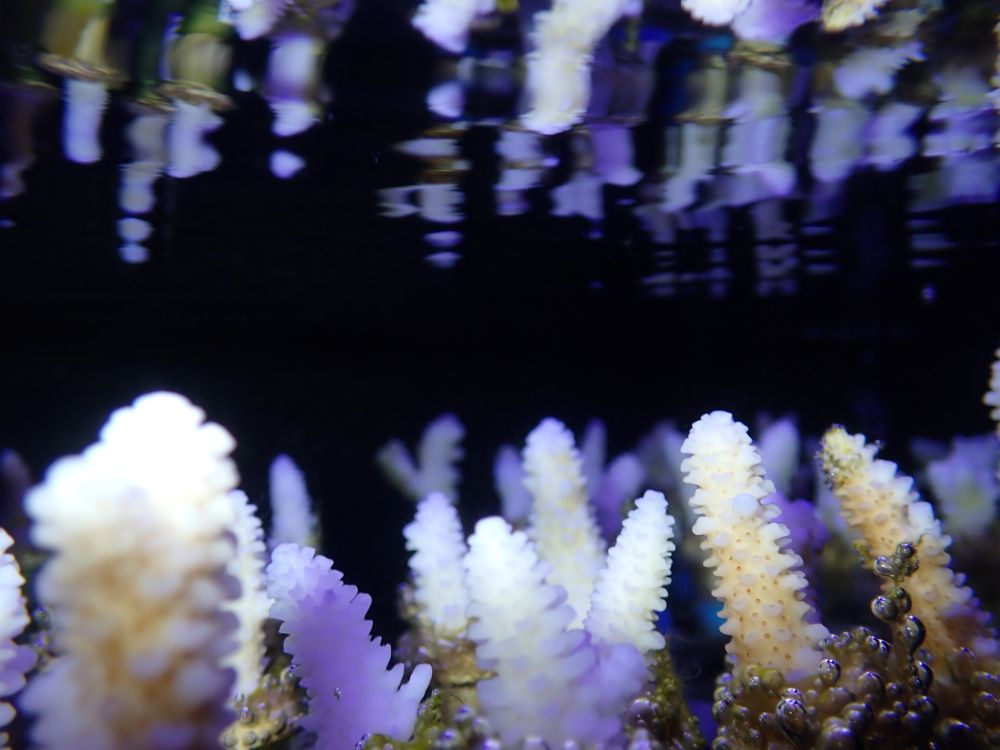
Offspring whose parents had high (rather than low) heat tolerance showed an enhanced ability to withstand the type of heat stress for which they were bred.
They can withstand the heat stress for a longer duration before the onset of bleaching and mortality.
(5/9)
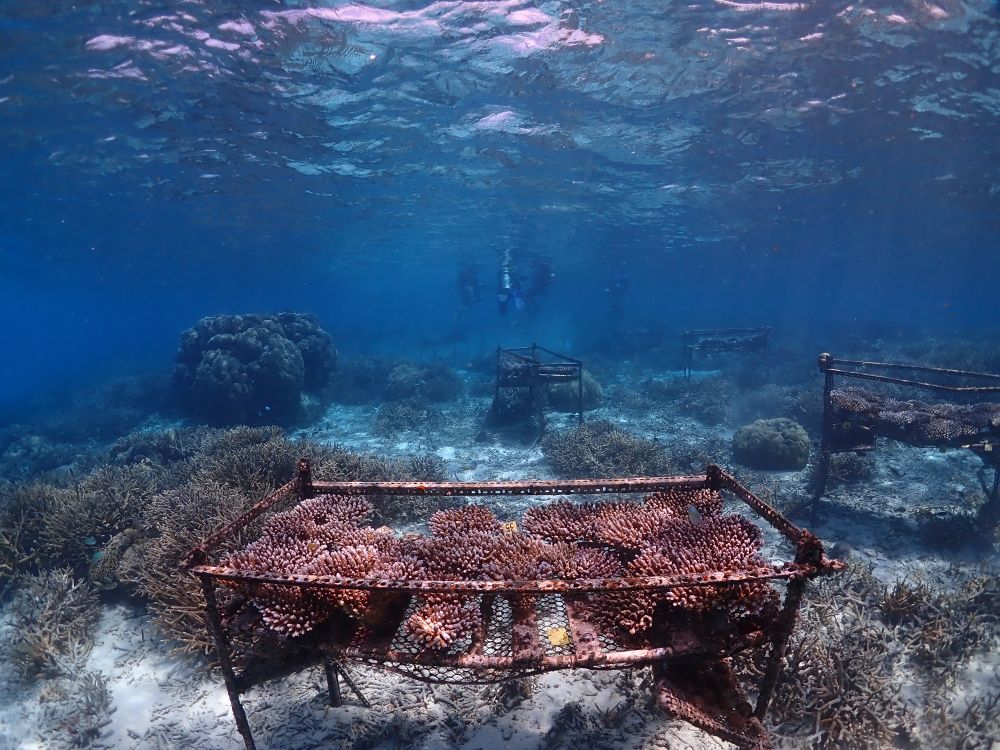
Then offspring were reared in an ocean nursery until they reached reproductive maturity themselves at 3-4 years old.
At this stage, the offspring were exposed to the same heat stress tests that were used years before to select their parents.
(4/9)
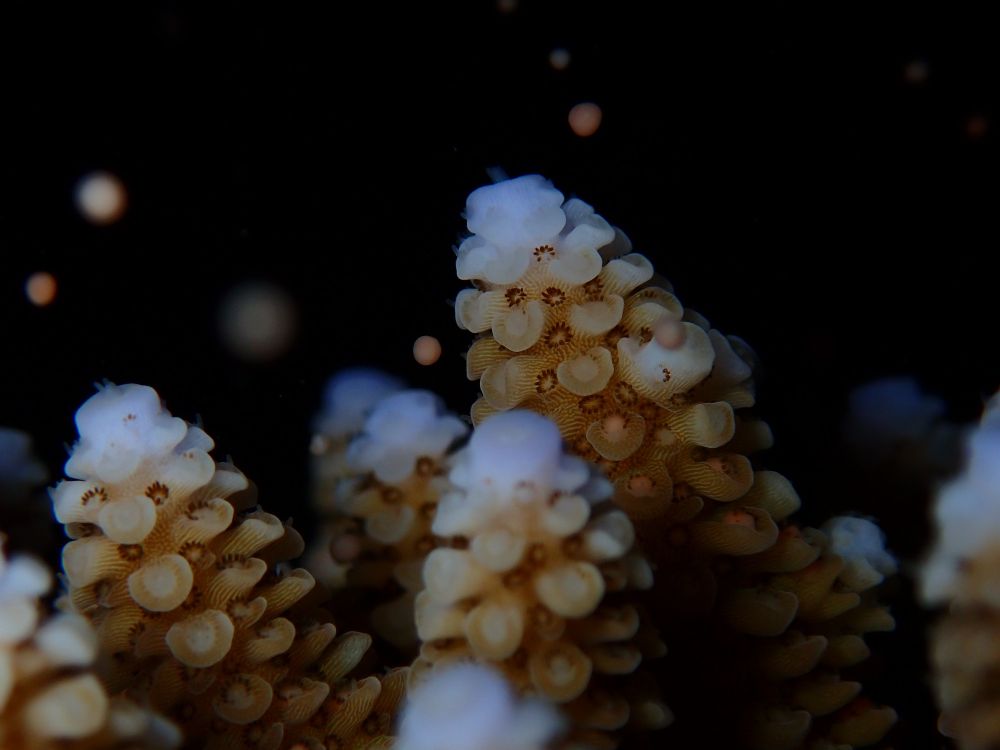
Selective breeding was conducted for the bleaching survival response of wild corals to both:
- a short-term ~1-week +3.5 °C heat stress
- long-term ~1-month +2.5 °C heat stress
(3/9)
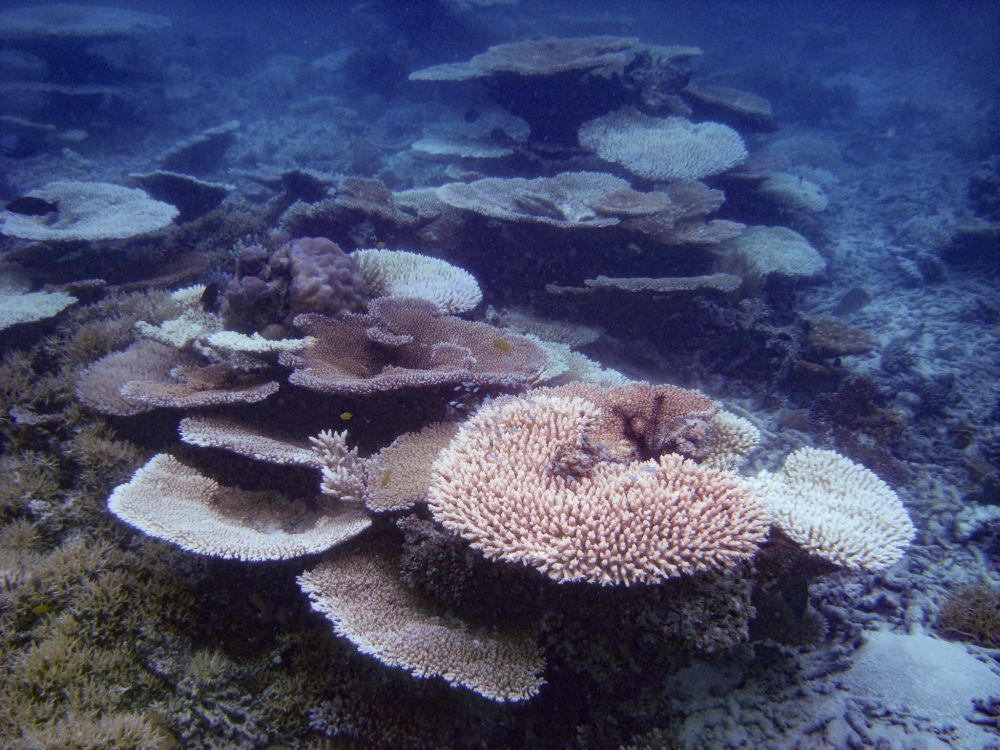
Photo credit: Rob van Woesik
Marine heatwaves are triggering mass coral bleaching & mortality events.
Whether corals can adapt fast enough remains uncertain, leading to calls for assisted evolution.
Since 2017, the Coralassist Lab & PICRC Palau have been testing whether selective breeding is a feasible option.
(2/9)
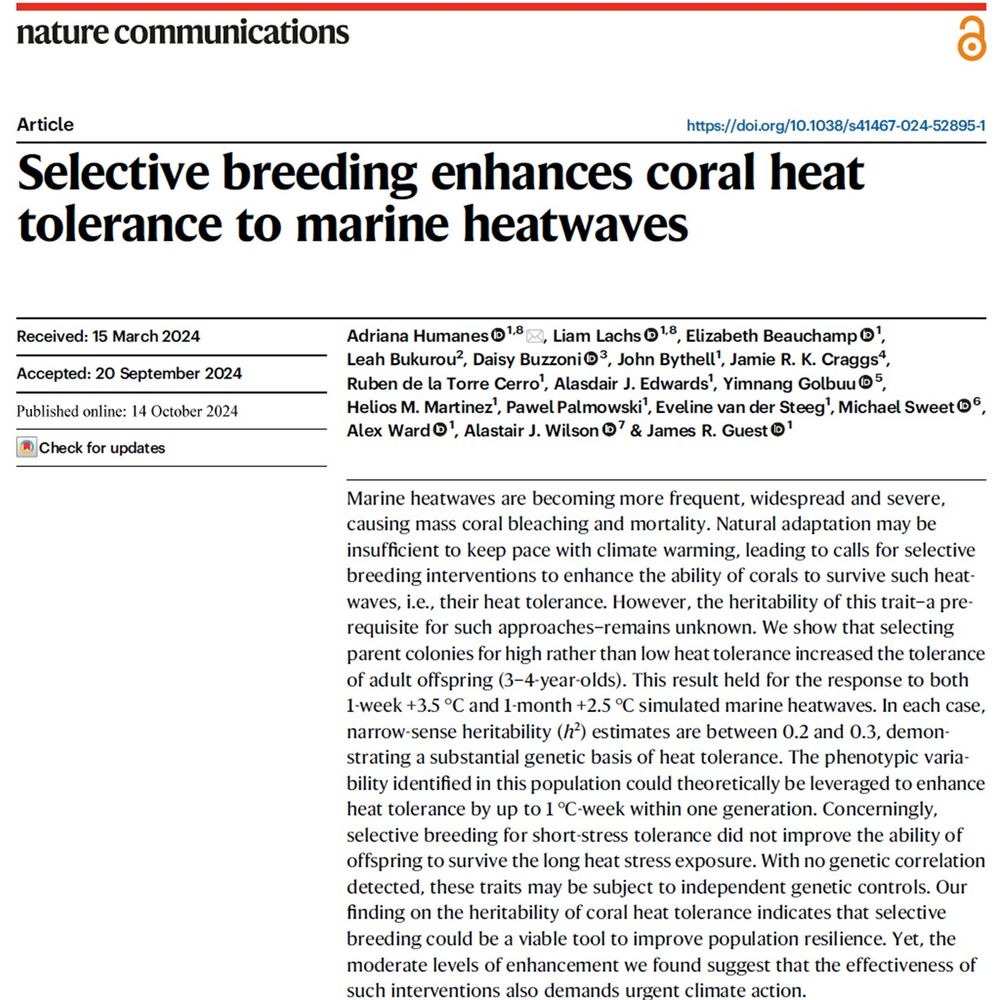
📢New Paper Alert📢
Selective breeding enhances tolerance of corals to marine heatwaves
Take-home messages:
- Breeding corals for heat tolerance is feasible
- R&D is now needed to optimise outcomes
- Not a silver bullet solution
- We still need rapid climate action
bit.ly/4h0Tc0P
(1/9)
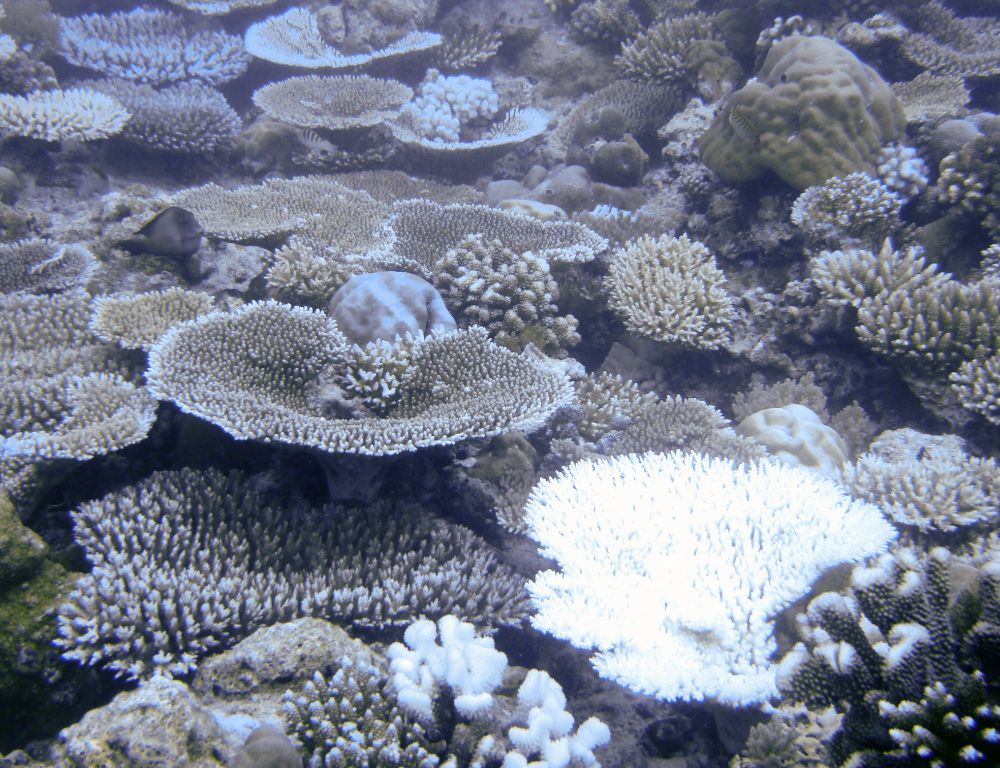
Thanks to Amanda Bates for her thoughts on how the recent paper from my PhD at the Coralassist Lab (on the variability of coral heat tolerance among reefs) contributes to thermal biology and conservation more broadly.
doi.org/10.1016/j.tr...